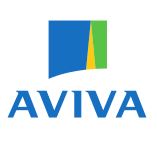
Bron
Aviva
Aviva, in partnership with Index Initiative, the United Nations Foundation and the Business and Sustainable Development Commission, will today launch the consultation phase of the World Benchmarking Alliance (WBA). This global multi-stakeholder initiative will develop and publish free to access, publicly available benchmarks ranking companies on their sustainability performance and contributions towards achieving the Sustainable Development Goals (SDGs).
Over the next nine months, the WBA founding partners will lead a global consultation to explore the opportunity and potential for using the benchmarks to measure, motivate, and reward business action on the SDGs. The UK, Danish and Dutch governments have committed funding to the consultation phase, in addition to funding and support from Aviva.
The launch follows Aviva Chief Executive Officer, Mark Wilson’s call at the 2015 UN General Assembly for the UN to help change the rules of the international financial system to become more sustainable and for businesses to play their part in contributing to delivery of the SDGs.
The Business and Sustainable Development Commission (BSDC) supported the concept and creation of corporate Global Goal benchmarks and the World Benchmarking Alliance in its landmark report “Better Business, Better World”. The report, published in January 2017, outlined the $12 trillion economic opportunity for business in pursuing sustainable and inclusive business models and the creation of 380 million jobs by 2030.
Speaking today in New York at the UN Global Compact Leaders Summit on the margins of the 72nd session of the UN General Assembly in “Global Goals Week”, Mark Wilson, said:
“Our idea is simple. We turn the SDGs into a corporate competitive sport. We draw up transparent data on performance towards meeting the SDGs, and we rank companies according to how well they are doing. This will motivate a race to the top and is what the proposed World Benchmarking Alliance is all about.”
Kathy Calvin, President and CEO of the UN Foundation, said; “Business today faces a simple choice, embrace sustainable development or risk getting left behind. Benchmarks create a common mechanism for companies to accelerate their sustainability performance and – more importantly – they change the status quo by enabling business, government and civil society to hold each other accountable in creating a world that is good for business, people, and the planet.”
Wim Leereveld, Chairman, Index Initiative and Founder Access to Medicines Index said; “Ranking companies on their actual behaviour doesn’t only drive the top of the list to set new boundaries, it also stimulates the companies in the lower regions to adapt their strategy and behaviour.”
The Governments providing support to the WBA consultation also commented:
Ulla Tørnæs, Minister for Development Cooperation, Ministry of Foreign Affairs of Denmark said; ‘We need more businesses of all sizes and investors to embrace the UN Sustainable Development Goals. Benchmarks can translate the SDGs into a business and innovation agenda, creating clarity on the unique role and abilities of companies to contribute to sustainable development in developing countries. Clarity on the role of business will equally demonstrate where we as governments must step up’
Lilianne Ploumen, Minister for Foreign Trade and Development Cooperation, The Netherlands said; “Civil society, investors and governments need to collectively voice what we expect from industry. And then work together with industry to unlock the full potential of the private sector. Initiatives like the World Benchmarking Alliance enable us to embrace a more productive and sustainable approach that benefits all of us.”



